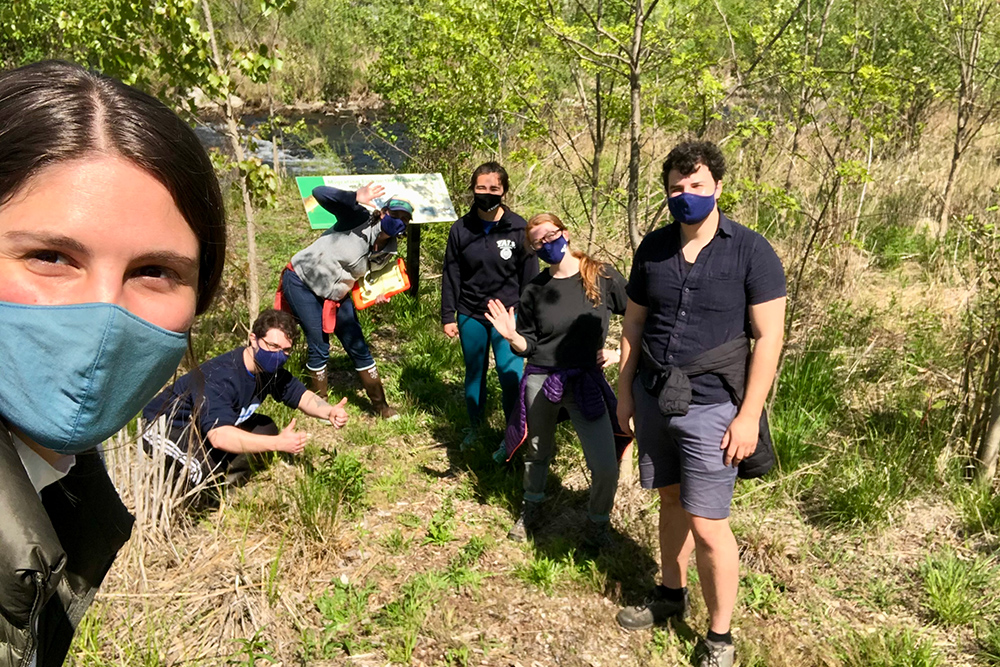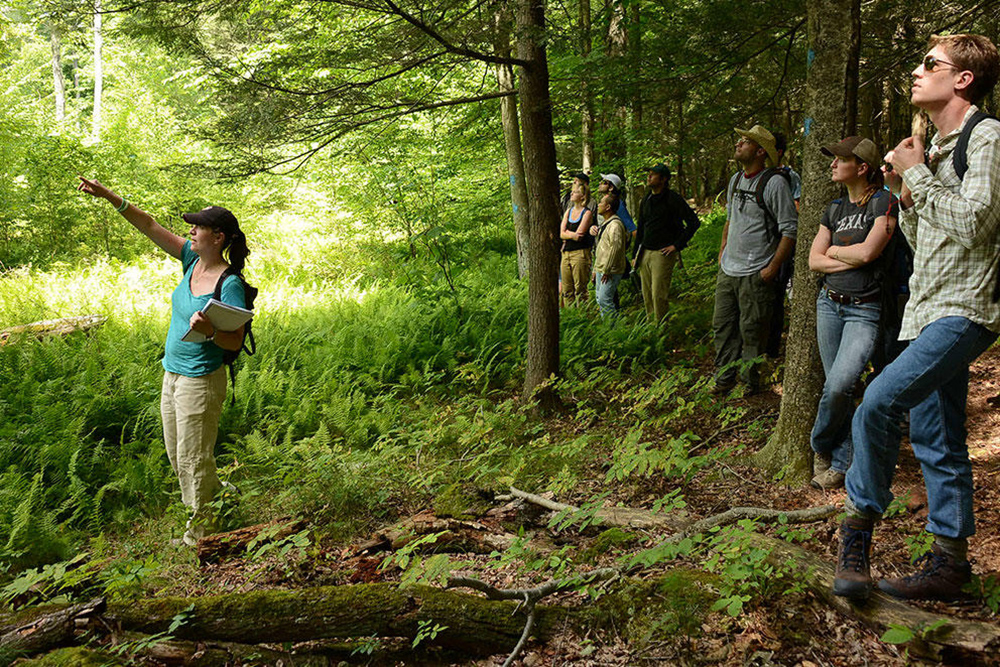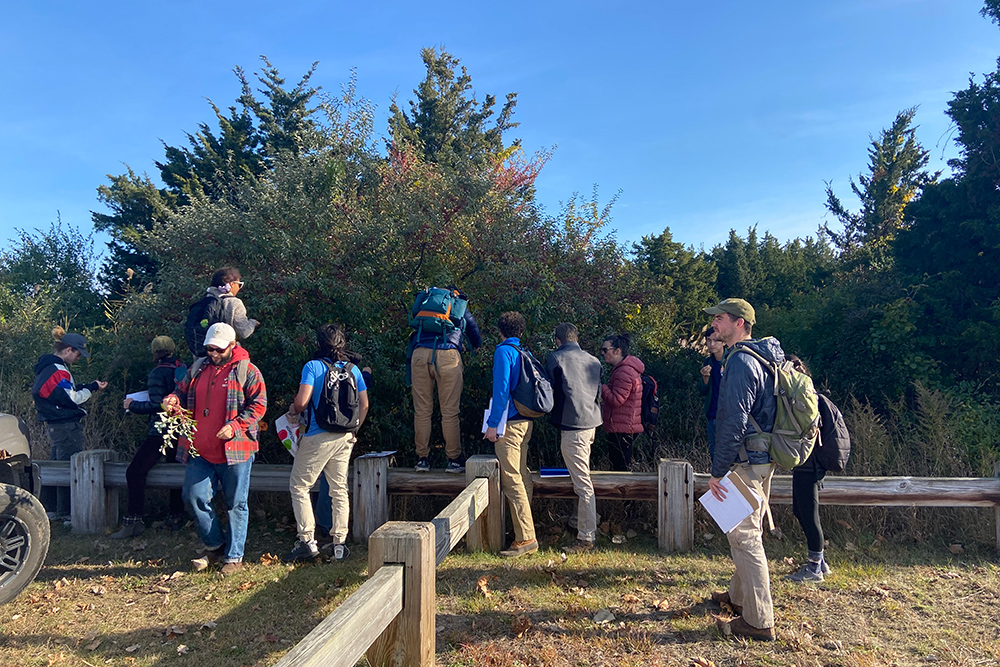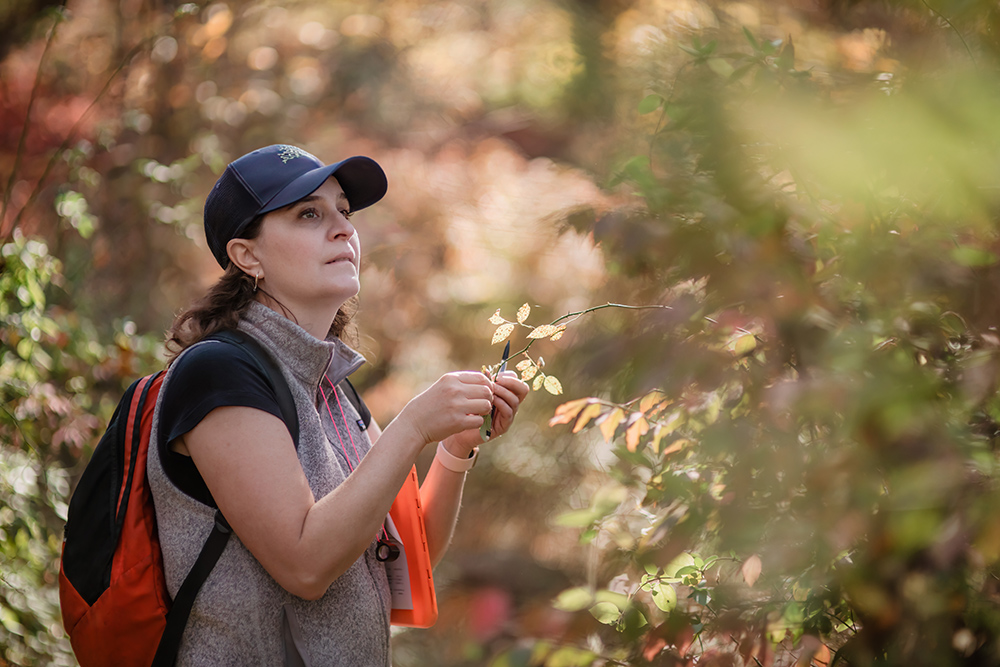Current Courses

Ecological Restoration (ENV 677)
This course is intended as a broad overview of restoration ecology. We will use the framework of ecosystem science to understand how and why humans facilitate the recovery of degraded ecosystems. We will balance discussions on the theory, background, and application of restoration ecology with topics related to the implementation of restoration projects (e.g., planning, evaluation, and policy). These various concepts will be integrated through the discussion of case studies presented by a variety of practitioners and scientists working across different systems (coral reefs, wildlife, fire, wetlands, etc.) and with diverse perspectives so that students get a broad exposure to the breadth and depth of scholarship and work in the field. Taught every other spring semester (next available spring 2026).

Forest Dynamics (ENV 660/EVST 360)
This course introduces the study of forest stand dynamics — how forest structures and compositions change over time with growth and disturbances. Understanding the dynamic nature of forest stands is important for creating and maintaining a variety of critical ecosystem services sustainably and synergistically, including sustainable supplies of wood products, biodiversity and wildlife habitats, water, fire protection, and others. Through readings, lectures, discussions, and field trips we explore forest development processes and pathways, concentrating on the driving mechanisms and emergent properties including natural and human disturbances. We make use of New England forests as living laboratories while discussing how similar forest patterns and processes are played out throughout the temperate, tropical, and boreal worlds. This class is a core component of the Master of Forestry. degree but is explicitly designed to be accessible to anyone interested in an in-depth exploration of forest ecosystems. Taught every fall semester.

Temperate Woody Plant Taxonomy and Dendrology (ENV 671 /EVST 231)
Dendrology literally translates as “the study of trees” and integrates morphology, phenology, ecology, biogeography, and the natural history of tree species. In this course you will learn how to identify the major temperate woody plant families, with a focus on North American forest species. In addition, you will learn the morphological and ecological traits used for field identification of woody plants. We will use phylogenetic systematics as the structure for understanding the evolutionary history and relationships between species. Class period will consist of practical field and laboratory skills used in plant taxonomy and field lecturing. Weather permitting, we will be in the field for the majority of class periods. We will use an ecosystem focused approach for plant identification. Besides learning how to identify species, we will discuss principles of plant ecology, biogeography, and natural history in each of the ecosystems we visit. Taught every fall semester.

Invasive Species: Ecology, Policy, and Management (ENV 694)
Humans are moving species outside of their native ranges at unprecedented rates, and the resulting biological invasions present challenges for ecologists, conservationists, and policy makers alike. Through course readings and in-class discussions seminar participants will learn to critically assess contemporary conservation and policy decisions regarding the regulation and management of nonnative species. Using a framework from the ecological study of biological invasions we will explore the major scientific questions in biological invasions, including ‘What makes a species invasive?” and ‘What makes a habitat invasible?” as well as more nuanced questions of how invasive species interact with native and other invasive species and how these interactions alter ecological consequences of biological invasions. Throughout the term we will discuss how invasion biology research informs policy decisions, assessing relevant policy questions such as ‘Should biocontrol agents be used against species invasions?’ or ‘Should we eat invasive species to control their abundance?’ This course is appropriate for anyone interested in learning how species introductions and anthropogenic change interact on a global scale, and how to use the science of species invasions to inform policy and management decisions. By the end of the course, students have a solid background in the ecology and social dimensions of biological invasions. These various concepts will be integrated through the discussion of case studies presented by a variety of practitioners and scientists working across different systems so that students get a broad exposure to the breadth and depth of scholarship and work in the field. Taught every other spring semester (being taught spring 2025).
Previous Courses
Tribal Forestry: Understanding Current Issues & Challenges (ENV 696)
Tribes and First Nations have been forest stewards since time immemorial on the land that is currently called North America. In the face of climate change, tribes and First Nations continue to work with institutions, NGOs, and federal and state agencies to support Indigenous sovereignty and resilient forested landscapes. This webinar focuses on the current state of tribal forest management and Indigenous stewardship with a series of speakers from different tribes, universities, non-profits, and agencies. Beginning with an introduction to tribal forestry and the trust responsibilities, topics include the history of forest stewardship on tribal lands in North America, federal laws and tribal forestry, contemporary uses of plants and wildlife stewardship, fire, conclusions from the Indian Forest Management Assessment (IFMAT), tribal co-management, and the future of tribal forestry in the face of climate change. The seminar portion of this course was co-developed and co-hosted by The Forest School and the Yale Center for Environmental Justice at Yale School of the Environment, and Salish Kootenai College. Recordings of the seminars area available. https://yff.yale.edu/speaker-series/tribal-forestry-understanding-current-issues-and-challenges
The New England Forest (EVST 007)
Exploration of the natural history of southern New England, with specific focus on areas in and around New Haven. Pertinent environmental issues, such as climate change, endangered species, and the role of glacial and human history in shaping vegetative patterns and processes, are approached from a multi-disciplinary framework and within the context of the surrounding landscape. Enrollment limited to freshmen. This course is a first-year seminar for Yale College Students.
Ecosystem Measurements for Conservation & Restoration (ENV 741)
This course is intended to expose students to a variety of field and laboratory methods used in conservation science. During the first half of the term, students gain experience in a broad range of field and lab methods and analysis with applied conservation relevance (e.g., carbon stocks, biodiversity). The second half of the term is a practicum where students design, conduct, analyze, and present data as a rapid assessment of a local property of interest to local conservation organization(s).